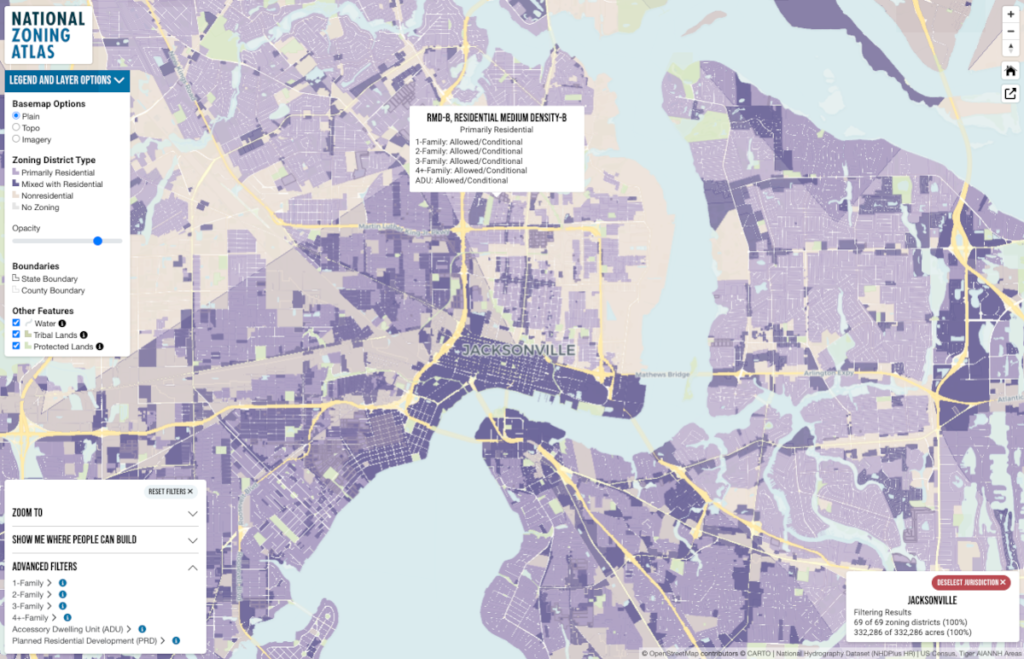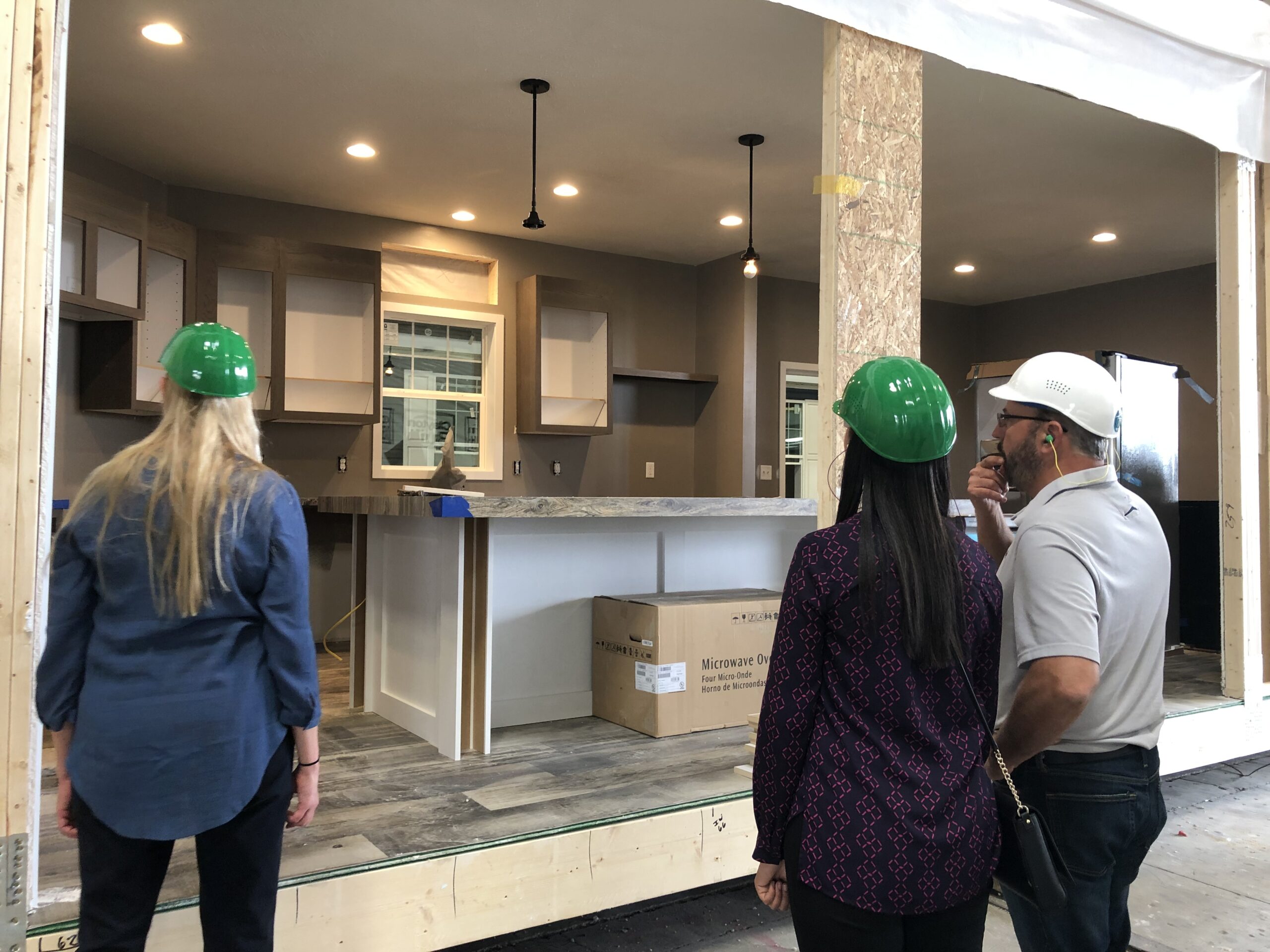National Zoning Atlas Unveils Market-to-Market Analysis of Housing Rules
The National Zoning Atlas is a grassroots project that aims to centralize and demystify the complex interworkings of overlapping, often opposing, and otherwise counterproductive housing rules and regulations on the local basis across the country.
In Connecticut, the NZA shed light on regulatory factors, particularly how race and income variables intersect with zoning policies. Meanwhile, in Montana, there has been a notable increase in affordability, particularly since the onset of the pandemic, bringing about what stakeholders describe as “powerful housing reform.”
This transformation, they assert, is directly linked to the comprehensive analysis conducted by the NZA team. The National Zoning Atlas has now extended its influence to 25 states, as it continues to spearhead fine-grain analysis and spur new initiatives. Among its key focuses is a meticulous examination of the presence and utility of manufactured housing.

Diana Drogaris works with Cornell University and is the outreach coordinator and legal counsel for the National Zoning Atlas.
“We’re at a different point in this trajectory at each site,” Drogaris said during a recent interview with MHInsider. “It depends on resources, whoever found us first, and also their own goals and capacity to accomplish those goals.”
The NZA is led by Sara Bronin, a professor of the Cornell planning and law faculty. Starting just a year ago with a core staff of four, the organization has grown significantly, adding team members to facilitate in-house project completion, including a focus toward an ongoing effort in Wyoming.
“Our new team members have enabled us to grow and finish some projects in-house,” Drogaris said. The organization also secured a grant targeting the 10 most populous areas that lacked coverage, extending the NZA reach and impact.
Tracking Efforts in the Early States
A small group of people in New Hampshire who are interested in how housing serves the needs of the state’s residents undertook a study within the NZA to better understand the origins of the state’s housing pains.
“New Hampshire is experiencing an affordable housing crisis in large part do to exclusionary or restrictive zoning,” said Sarah Marchant, chief of staff for New Hampshire Community Loan Fund. “People have a very difficult time understanding zoning, because it’s a complicated issue,” Marchant said. “We’re hoping this atlas can make communities more curious about their housing landscape and help them understand how the layers of zoning can limit both availability and affordability.”
Max Latona, a philosophy professor and the executive director for the Center for Ethics in Society at St. Anselm College, helped lead the effort to map New Hampshire’s local residential zoning laws.
The effort involved studying the zoning for the state’s 269 jurisdictions, which holds 2,139 districts. “It took months and months of hard work from about a dozen people including interns, analysts, and subject matter experts reading over 23,000 pages of code and collecting over 400,000 pieces of data,” Latona said.
“The Atlas covers all different kinds of housing. And then we looked at all the dimensional regulations for each, including parking requirements.”
The team also took a special look at manufactured housing in the state. What the team found was that fewer than 10 percent of New Hampshire municipalities allow manufactured homes to be placed on less than one acre, either on a single lot or within a manufactured-home park. They are now taking a closer look at those rare communities to see if there are opportunities to bring new manufactured homes there.
“Most communities in New Hampshire have restricted anything other than large-lot, single-family homes,” Marchant said. “Even if communities don’t outright prohibit manufactured homes, they often restrict them by default through front and side setbacks, minimum lot sizes or other dimensional requirements.”
Marchant and Latona said they came to learn of the National Zoning Atlas from what they described as “a stirring presentation” from Bronin on the Desegregate Connecticut project and its interaction with the NZA.
Connecticut was the first state to complete its zoning map through the NZA, followed by New Hampshire, Hawaii, and Rhode Island, and regional releases in Montana, Tennessee, and Virginia. The heart of the NZA’s mission is the digitizing, demystifying, and democratizing of zoning information. “Solving our national housing crises will necessitate a multi-pronged reimagining of how and where we build,” Drogaris emphasized.
“An improved clarity around zoning is a powerful tool in that tool box.”
The “democratizing” part of the project extends well through collection and publication. As new facets of the research are completed and new team members come on, important questions arise.
“What are we going to do with the analysis, and how are we going to present it?” Drogaris posed. “This will be a continuing conversation as the project expands.”
The NZA’s work in Connecticut in 2020, for instance, brought to light deeply embedded issues in the state’s zoning practices, leading to a commitment to desegregate.
Notably, 90 percent of all residential zoning in the state goes to single-family dwellings, with less than four percent allocated to multifamily structures or developments.
The NZA operates largely through organizing statebased teams working alongside centralized zoning and GIS analysts, with current initiatives well underway in the states previously discussed as well as in Vermont, California, and Georgia.
Public access to the national map will showcase data from the four completed states as well as areas with notable progress such as Long Island, N.Y., and Massachusetts. These viewpoints allow stakeholders to utilize reliable information on an individual or small-team pace, as well as to coordinate, connect, and collaborate, supported by the NZA platform, with interested parties in other states and localities. The project also helps manufactured housing professionals evaluate and address zoning challenges comprehensively.
MHInsider is the leader in manufactured housing news and is a product of MHVillage, the top marketplace for manufactured homes.













